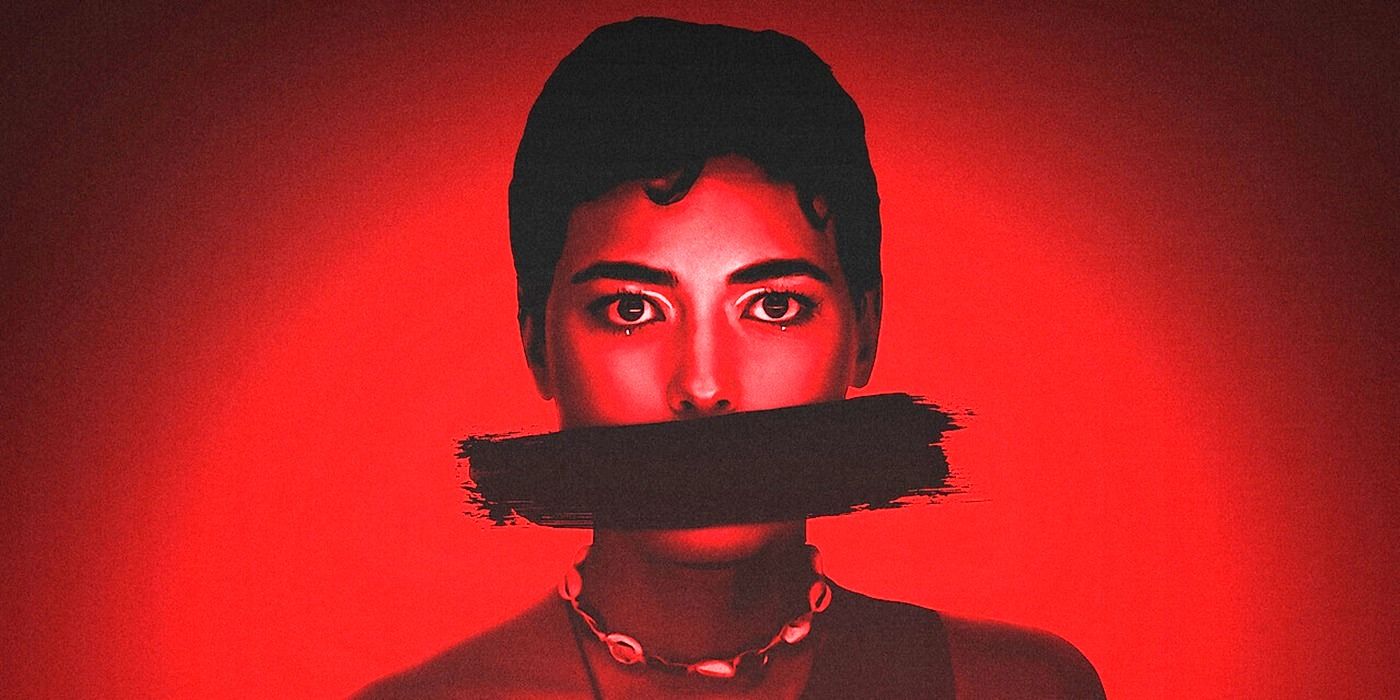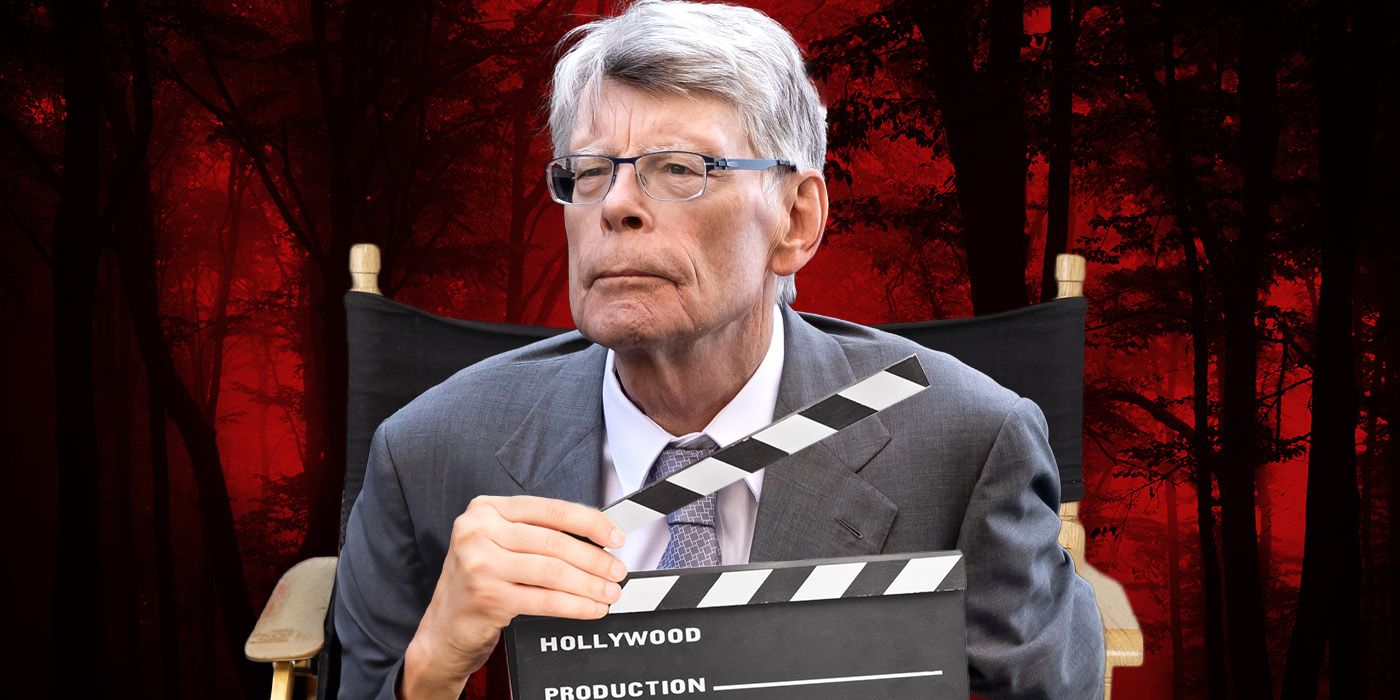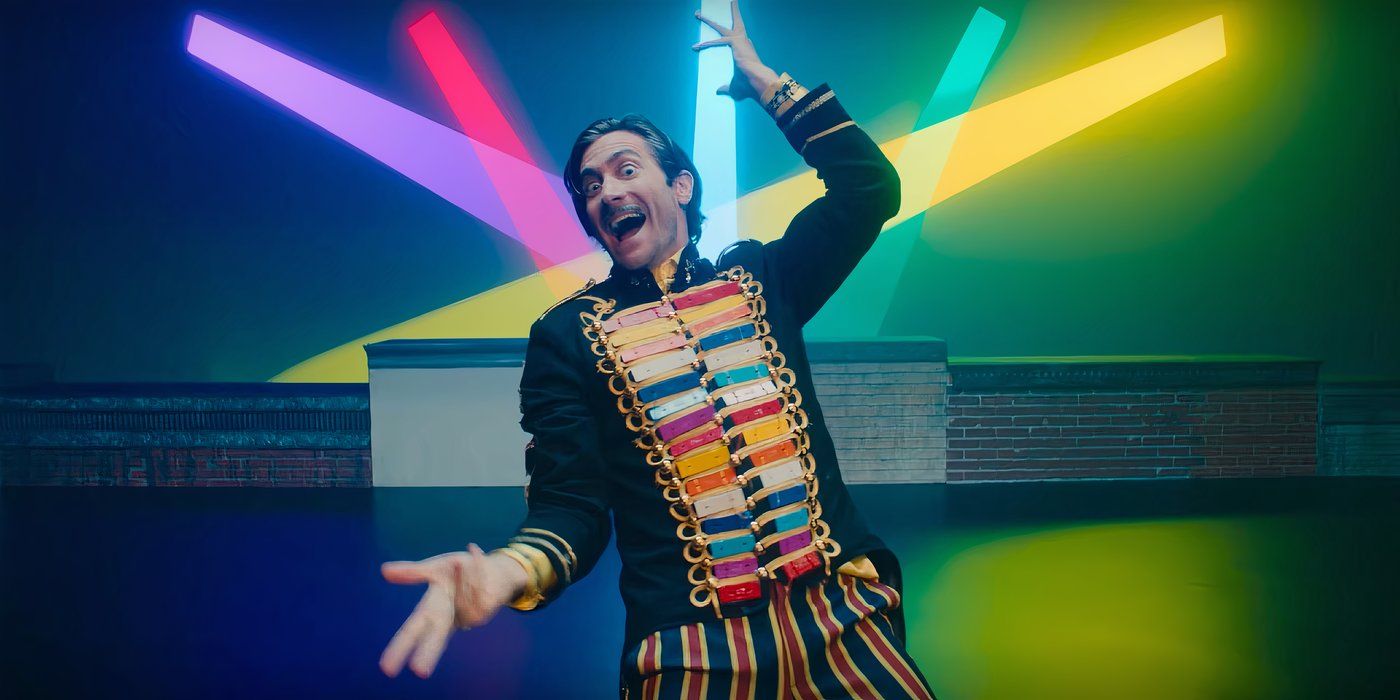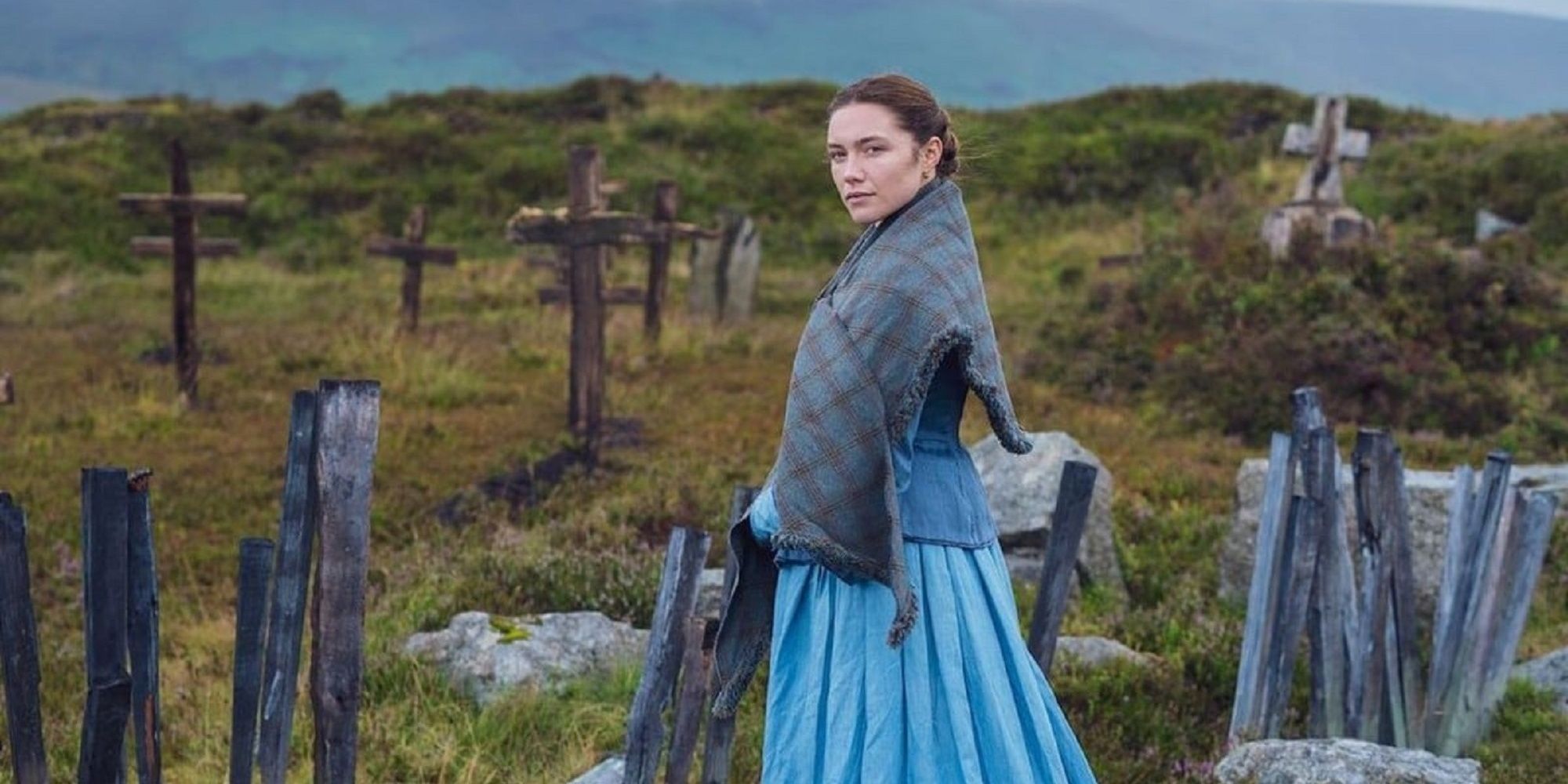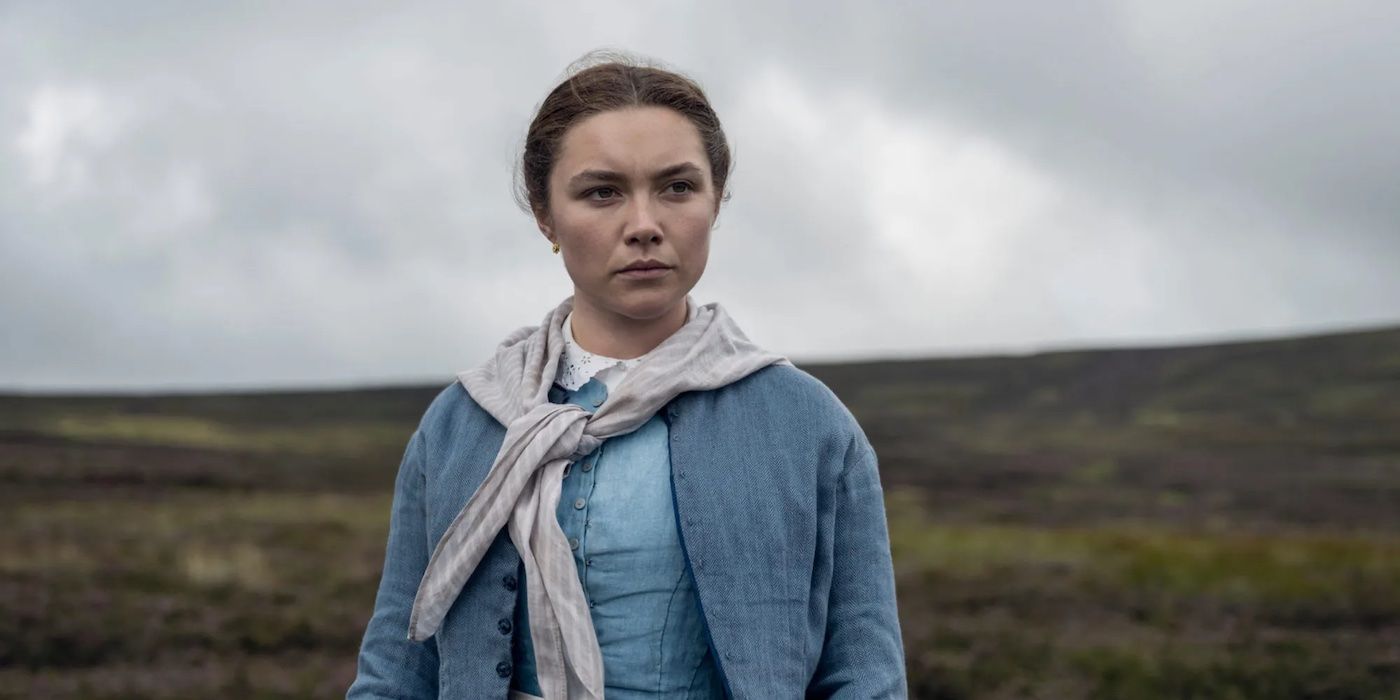Editor's Note: the following contains major spoilers for The Wonder.Upon first watching writer-director Sebastián Lelio’s The Wonder at this year’s Toronto International Film Festival, there was a tension in trying to convey the full scope of the significance of what had happened. To delve into the conclusion and the way it connects back to the very start would give away too much about what the story has on its mind. However, with the film getting a limited release in theaters and a streaming release on Netflix starting November 16, the time is now a good one to delve into everything that happens with the ending. In case it wasn’t already clear, this piece contains massive spoilers about the film. In the event you haven’t seen it, best to remedy that and then come back to this page.
The first thing that should be noted is that The Wonder is a story about storytelling itself. This is felt in the opening moments where we see the artifice of the sets in a warehouse meant to create the appearance of the 19th century laid bare before us. As we then zoom in on Florence Pugh’s Lib Wright, a nurse traveling to a remote community on a strange assignment, we are similarly brought into the world we were just shown was a creation. More on that later, but Pugh’s narration makes clear that we are taking a leap of faith into believing this fictional story just as the characters themselves are about their own lives. We learn that Lib has been called to observe an 11-year-old girl named Anna O’Donnell (Kíla Lord Cassidy) who has supposedly not been eating for several months. Based on some of the “true” stories of so-called fasting girls, we see how both her family and almost everyone in the town believe she is consuming “manna from Heaven” to survive. The only person who is similarly skeptical like Lib is journalist William Byrne (Tom Burke) who begins to work with her to find the truth.
As it turns out, Anna has not actually been surviving via divine sustenance and is actually being passed food when she is kissed by her mother. When Lib discovers this, she separates the parents from the young girl and hopes that this will be the end of the charade. To her horror, no one calls a stop to the observation even as Anna begins to grow increasingly emaciated and weak. Though Lib is correct in both her conclusion and the concern that the young girl will die unless something is done, the days continue to pass with her growing increasingly weak. The painful reality then becomes that the truth itself does not matter. No matter how well-reasoned Lib is, she has not told a compelling enough story to convince those overseeing the observation to intervene. They want to believe that the young girl has been selected by some sort of divine force that facts and logic cannot get in the way of. Thus, Lib realizes that she has to take matters into her own hands by taking Anna away with William. She uses fire as cover by convincing the town that Anna perished in the blaze.
This explains the literal sequence of events, but the thematic explanation is much more intriguing. It is not about the twist of how Anna was surviving as this revelation is merely the beginning of the more engaging elements. Instead, it is about what makes for a compelling story. At the beginning, we were shown how all of this had been constructed and we as the audience were buying into it. At the true conclusion, outside the narrative itself, the artifice is broken once more. This time, we see Niamh Algar who had played the character Kitty in the film though now appears as herself. This full circle moment from Pugh’s narration to this closing callback makes explicit that what Lelio, as well as writers Emma Donoghue who wrote the book on which the film is based and Alice Birch who previously penned 2016’s Lady Macbeth, is interested in has less to do with the investigation as opposed to its underpinnings.
That Lib was successful in getting to the bottom of what was happening, ostensibly the job that she was hired to do, is largely irrelevant to the shift the story makes. While this was clear from the beginning that people weren’t interested in truth based on how they put barrier after barrier in front of her, the way it all comes together in the conclusion takes this a step further by revealing just how caught up in their own story all the characters could be. Even with the reality staring them right in the face and Lib doing everything she can to guide them back to truth, they still continued to believe the alluring yet false narrative they had been telling themselves about Anna. No matter how much it may conflict with the truth, a story that takes hold of you can subsume all else and set you on a path that nothing can remove you from.
It makes for a conclusion that is both oddly cynical and caring at the same time. For all the ways it shows the cruel consequences befalling Anna because of the desperation to cling to the story of her being blessed in some way, the film makes clear that this overriding obsession is also part of what drives people. It doesn’t excuse it or attempt to downplay it. Rather, it seeks to understand how the film itself mirrors the desire for a story being told within it. Many seek out stories, be it in film or otherwise, to make meaning of a world that has no inherent purpose to it. Stories are a tool to make sense of the unexplainable and to craft a really good one is to almost create a work of magic that defies understanding. By the time Lib arrives at this conclusion, she understands the way she can protect Anna is by embracing this approach. She then must tell a better story not just to the community, but to the young girl herself in order to save her. It is still a lie, but are not all stories some form of deception?
The Wonder is currently in select theaters and comes to Netflix on November 16.


